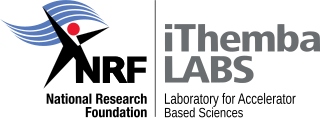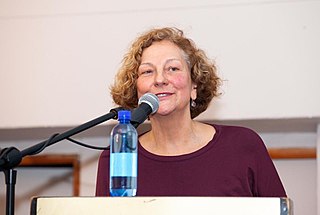Queer studies, sexual diversity studies, or LGBT studies is the study of topics relating to sexual orientation and gender identity usually focusing on lesbian, gay, bisexual, transgender, gender dysphoria, asexual, queer, questioning, intersex people and cultures.
Media literacy is an expanded conceptualization of literacy that includes the ability to access and analyze media messages as well as create, reflect and take action, using the power of information and communication to make a difference in the world. Media literacy is not restricted to one medium and is understood as a set of competencies that are essential for work, life, and citizenship. Media literacy education is the process used to advance media literacy competencies, and it is intended to promote awareness of media influence and create an active stance towards both consuming and creating media. Media literacy education is part of the curriculum in the United States and some European Union countries, and an interdisciplinary global community of media scholars and educators engages in knowledge and scholarly and professional journals and national membership associations.

The University of the Witwatersrand, Johannesburg, commonly known as Wits University or Wits, is a multi-campus public research university situated in the northern areas of central Johannesburg, South Africa. The university has its roots in the mining industry, as do Johannesburg and the Witwatersrand in general. Founded in 1896 as the South African School of Mines in Kimberley, it is the third oldest South African university in continuous operation.

Neurodiversity is a proposed framework that argues there is intrinsic diversity in human brain function and cognition, and that certain things currently classified as mental disorders are differences and disabilities but are not necessarily pathological. The framework grew out of the autism rights movement and builds on the social model of disability, arguing that disability partly arises from societal barriers, rather than attributing disability purely to inherent deficits. It instead situates human cognitive variation in the context of biodiversity and the politics of minority groups. Some neurodiversity advocates and researchers argue that the neurodiversity paradigm is the middle ground between strong medical model and strong social model.

Intersectionality is an analytical framework for understanding how individuals' various social and political identities result in unique combinations of discrimination and privilege. Intersectionality identifies multiple factors of advantage and disadvantage. Examples of these factors include gender, caste, sex, race, ethnicity, class, sexuality, religion, disability, weight, and physical appearance. These intersecting and overlapping social identities may be both empowering and oppressing. However, little good-quality quantitative research has been done to support or undermine the theory of intersectionality.
Critical literacy is the ability to find embedded discrimination in media. This is done by analyzing the messages promoting prejudiced power relationships found naturally in media and written material that go unnoticed otherwise by reading beyond the author's words and examining the manner in which the author has conveyed his or her ideas about society's norms to determine whether these ideas contain racial or gender inequality.
Elizabeth DePoy is a disability theorist, professor of interdisciplinary disability studies, social work, and cooperating faculty in mechanical engineering at the University of Maine and also senior research fellow. Ono Academic College, Research Institute for Health and Medical Professions. Kiryat Ono, Israel.
Max Price is a former vice-chancellor and principal of the University of Cape Town (UCT) in South Africa. He succeeded Njabulo Ndebele and held this position for 10 years from 19 August 2008 until 30 June 2018.

The University of Pretoria is a multi-campus public research university in Pretoria, the administrative and de facto capital of South Africa. The university was established in 1908 as the Pretoria campus of the Johannesburg-based Transvaal University College and is the fourth South African institution in continuous operation to be awarded university status. The university has grown from the original 32 students in a single late Victorian house to approximately 53,000 in 2019. The university was built on seven suburban campuses on 1,190 hectares.
Ruth Sacks is a South African artist who lives and works in Johannesburg. She is currently a postdoctoral researcher in the South African Research Chair Initiative (SARChI) for Social Change at Fort Hare University. Sacks holds a PhD (Arts) from the University of the Witwatersrand where she was a fellow at the Wits Institute for Social and Economic Research (WiSER). Her third artist book, Twenty Thousand Leagues Under Seas, was launched in 2013. She is a laureate of the HISK in Ghent. She was one of the facilitators of the artist-run project space the Parking Gallery, hosted by the Visual Arts Network of South Africa (VANSA) in Johannesburg. Ruth Sacks' work has been presented internationally in venues such as the African Pavilion at the 52nd Venice Biennalein 2007, the ZKM Centre for Art and Media, Karlsruhe in 2011 and the National Museums of Kenya, Nairobi in 2017.
Victor (Vic) Berel Finkelstein was a disability rights activist and writer. Born in Johannesburg, South Africa and later living in Britain, Finkelstein is known as a pioneer of the social model of disability and a key figure in developing the understanding the oppression of disabled people.
Migration studies is the academic study of human migration. Migration studies is an interdisciplinary field which draws on anthropology, prehistory, history, economics, law, sociology and postcolonial studies.
Intergroup dialogue is a "face-to-face facilitated conversation between members of two or more social identity groups that strives to create new levels of understanding, relating, and action". This process promotes conversation around controversial issues, specifically, in order to generate new "collective visions" that uphold the dignity of all people. Intergroup dialogue is based in the philosophies of the democratic and popular education movements. It is commonly used on college campuses, but may assume different namesakes in other settings.
Critical animal studies (CAS) is an interdisciplinary field in the humanities and social sciences and a theory-to-activism global community. It emerged in 2001 with the founding of the Centre for Animal Liberation Affairs by Anthony J. Nocella II and Steven Best, which in 2007 became the Institute for Critical Animal Studies (ICAS). The core interest of CAS is ethical reflection on relations between humans and other animals, firmly grounded in trans-species intersectionality, environmental justice, social justice politics and critical analysis of the underlying role played by the capitalist system. Scholars in the field seek to integrate academic research with political engagement and activism.

Nanjala Nyabola is a writer, political analyst, and activist based in Nairobi, Kenya.
Edwin Ekwevukugbe Etieyibo is a Nigerian-Canadian (Afro-Canadian) philosopher dedicated to advancing African philosophy. He is an advocate of the validity of ethnophilosophy. This view has been criticised by a number of scholars and philosophers who argue that traditional African philosophy and ethnophilosophy are not genuine philosophy. Etieyibo is a professor of philosophy and chair of the Department of Philosophy at the University of the Witwatersrand, Johannesburg, South Africa. He is also an adjunct professor at the University of Alberta.
Zeblon Zenzele Vilakazi has been Vice Chancellor of the Wits University in Johannesburg, South Africa since 1 January 2021. Professor Vilakazi is a nuclear physicist. Prior to his promotion, he was Vice-Principal and Deputy Vice-Chancellor for Research and Postgraduate Studies. He speaks French, German, Russian, Xhosa, Zulu, Siswati, Sesotho, Afrikaans and English.

iThemba Laboratory for Accelerator Based Sciences is a scientific research centre with plants at Faure near Cape Town and on the Wits Campus in Johannesburg.

Melissa Steyn is a South African academic based at the University of the Witwatersrand, Johannesburg. Prior to moving to Johannesburg in 2011, she taught at the University of Cape Town.
Archibald Boyce Monwabisi Mafeje, commonly known as Archie Mafeje, was a South African anthropologist and activist. Born in what is now the Eastern Cape, he received degrees from the University of Cape Town (UCT) and the University of Cambridge. He became a professor at various universities in Europe, North America, and Africa. He spent most of his career away from apartheid South Africa after he was blocked from teaching at UCT in 1968.







